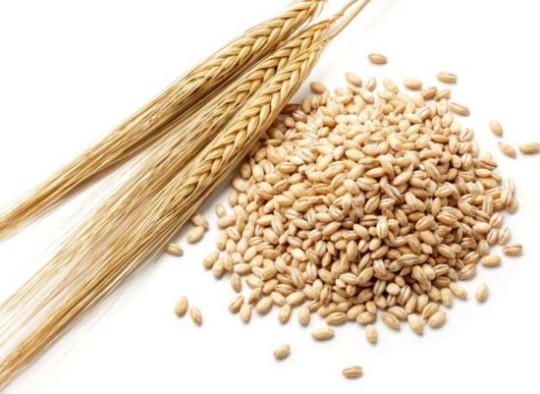Health properties of wheat
Let's find out more about the health benefits of wheat.
1. Controls obesity
Wheat, as a whole grain, has a natural ability to control weight, but this ability is more visible among women. Women who consumed whole wheat products over long periods of time lost more weight. Also, the American Journal of Clinical Nutrition has shown through its research that whole wheat is a good choice for people with obesity, rather than its refined form.
2. Increases energy levels
Whole wheat with its B vitamins helps boost energy levels, according to the Center for Brain, Function and Nutrition Research at the University of Northumberland, UK. In addition, whole grains contain complex carbohydrates, which make you feel full longer and have more energy in the long run.
3. Prevent metabolic disorders
Whole grains such as wheat are very effective in improving patients with metabolic disorders. Different types of metabolic syndrome include abdominal obesity, also known as a "pear-shaped" body, high triglycerides, low levels of protective HDL cholesterol, and high blood pressure. Consumption of whole wheat products protects the body against these disorders. Research by nutritionists Janice Harland and Lynn Gerton, published in the Journal of the Nutrition Association, also found that eating more whole grains (about three servings a day) was associated with lower BMIs and lower central obesity.
Properties of wheat 4: Prevents type 2 diabetes
Wheat is rich in magnesium, which acts as a cofactor for more than 300 enzymes. These enzymes are involved in the body's functional use of insulin and glucose secretion. In addition, regular consumption of whole grains helps control blood sugar levels at a healthy level, according to a study published in the American Journal of Clinical Nutrition. People with diabetes can control their sugar levels by replacing rice with wheat in their diet.
5. Reduces chronic inflammation
Betaine in wheat prevents chronic inflammation, one of the most important factors in the development of pain and rheumatic diseases. Its anti-inflammatory salts reduce the risk of other diseases such as osteoporosis, heart disease, cognitive decline and type 2 diabetes.
6. Prevents the formation of gallstones
Since whole wheat is rich in insoluble fiber, it can make bowel movements smoother and easier, while also reducing the secretion of bile acids. Excess bile acids are one of the main causes of gallstones. Various surveys by the American Journal of Gastroenterology have shown that whole-grain breads and cereals help prevent gallstones.
Properties of wheat
7. Improves metabolism
The fiber in whole wheat products strengthens the digestive process in the body and improves overall metabolism. Doctors recommend eating whole grain breads and other foods rich in fiber. Research has shown that foods made from refined grains not only cause weight gain, but also increase the risk of insulin resistance.
8. It has a very high fiber
When you have a high-fiber diet consisting of whole wheat breads and whole grains, you can be sure that problems such as bloating, nausea, constipation and swelling will end in a very short time. A study published in the Journal of Food Science and Technology says that fiber, like fiber found in wheat, helps maintain a healthy digestive system. Whole wheat is the most popular and available laxative.
Also, diverticulitis often occurs due to inflammation and pain in the lower intestine. This disorder can lead to chronic constipation and unnecessary pressure and create a sac or sac in the wall of the large intestine. Such cases can be easily and naturally treated by maintaining a high-fiber diet and eating whole grains regularly.
Properties of wheat 9: Promotes women's health
Whole wheat increases energy levels in women. A long-term study showed that increasing the consumption of whole grains increased women's energy levels, prevented weight gain and type 2 diabetes, and kept their BMI levels low. The study also found that women who ate more whole grains tended to have healthier diets and ate more fruits and vegetables. Whole-grain flour products contain folate and B vitamins, thus helping to reduce pregnancy and lactation problems.
Prevents asthma in children
Numerous international studies on childhood allergies and asthma have shown that a wheat-based diet has the potential to reduce the risk of developing asthma by approximately 50%. Increased airway response is also a key factor in exacerbating asthma. This disorder is characterized by narrowing of the airways and increased sensitivity. Many studies have shown that children who eat large amounts of whole grains and fish do not suffer from such diseases because they are high in magnesium and vitamin E.
Note: However, in some cases, wheat consumption may be harmful to patients with asthma, as it can be an asthma-related food allergen. Consult a doctor who can give you a thorough examination and diagnosis of possible allergies.
10. Reduces postmenopausal symptoms
High consumption of unrefined wheat products m
